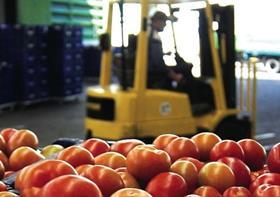
Spanish vegetable exporters have revealed that it “could take years” to fully recover market confidence in their products and have called for the Spanish government and the EU to back promotional actions to recuperate their image “without time limits”.
With German-grown beansprouts having been identified by the country’s authorities as the likely cause of Germany’s deadly E.coli outbreak, Spanish producers are stressing the need for action to recover their lost market share, after Spanish cucumbers were initially wrongly blamed.
However, despite the German food safety authorities discounting the possible link with Spanish products last week, Russia has yet to withdraw a ban on imports of all vegetables from Spain and Germany imposed on 1 June.
Further increasing pressure on Spanish and European exporters, the United Arab Emirates also placed a ban last Thursday (2 June) on Spanish, Dutch, Danish and German vegetable imports, while Qatar has also halted Spanish and German cucumber, tomato and lettuce imports.
Given that fresh vegetable exports still remain at a near standstill, Spanish fresh produce associations have met with the country’s authorities with a view to staging a Europe-wide promotional campaign once the source of the outbreak is definitively identified.
Speaking after a meeting with officials in Madrid, Andrés Góngora from the Coordinator of Agricultural Organisations (COAG) said the government and associations had agreed, as a first step, to promotional action led by Spain’s external embassies.
This, he told Spanish daily Ideal, would take the form of contacts with supermarkets, television news bulletins and the international press to “make it clear” that Spain “is not a banana republic”.
The two sides have also agreed to register a formal complaint with France over what they view as a campaign “to discredit” Spanish products, claiming that the French media, and the country’s growers, are blaming the low prices of Spanish fruits and vegetables on “a lack of food safety”.
As well as a domestic promotional campaign within Spain itself, Góngora said the associations and the government had also agreed to begin Europe-wide promotions to recuperate the image of Spanish products once the source of the outbreak is identified.
The future campaign is expected to be focused on Germany, France, the UK and the Netherlands – Spain’s four principal markets in Europe – although Alfonso Zamora, managing director of Ecohal, told the media that it “should last for years, as that’s what it will take to recover the lost confidence (in Spanish products)”.
Separately, Alfonso Gálvez Caravaca, general secretary of regional fresh produce association Asaja Murcia, has called on the EU to take “all means necessary” to persuade countries that have closed their borders to Spanish borders “to open them immediately to normalise the sale of Spanish fruits and vegetables”.
“Given the terrible consequences of the cucumber crisis, it is of maximum importance that EU institutions recover the confidence in Spanish horticultural products,” he said.



